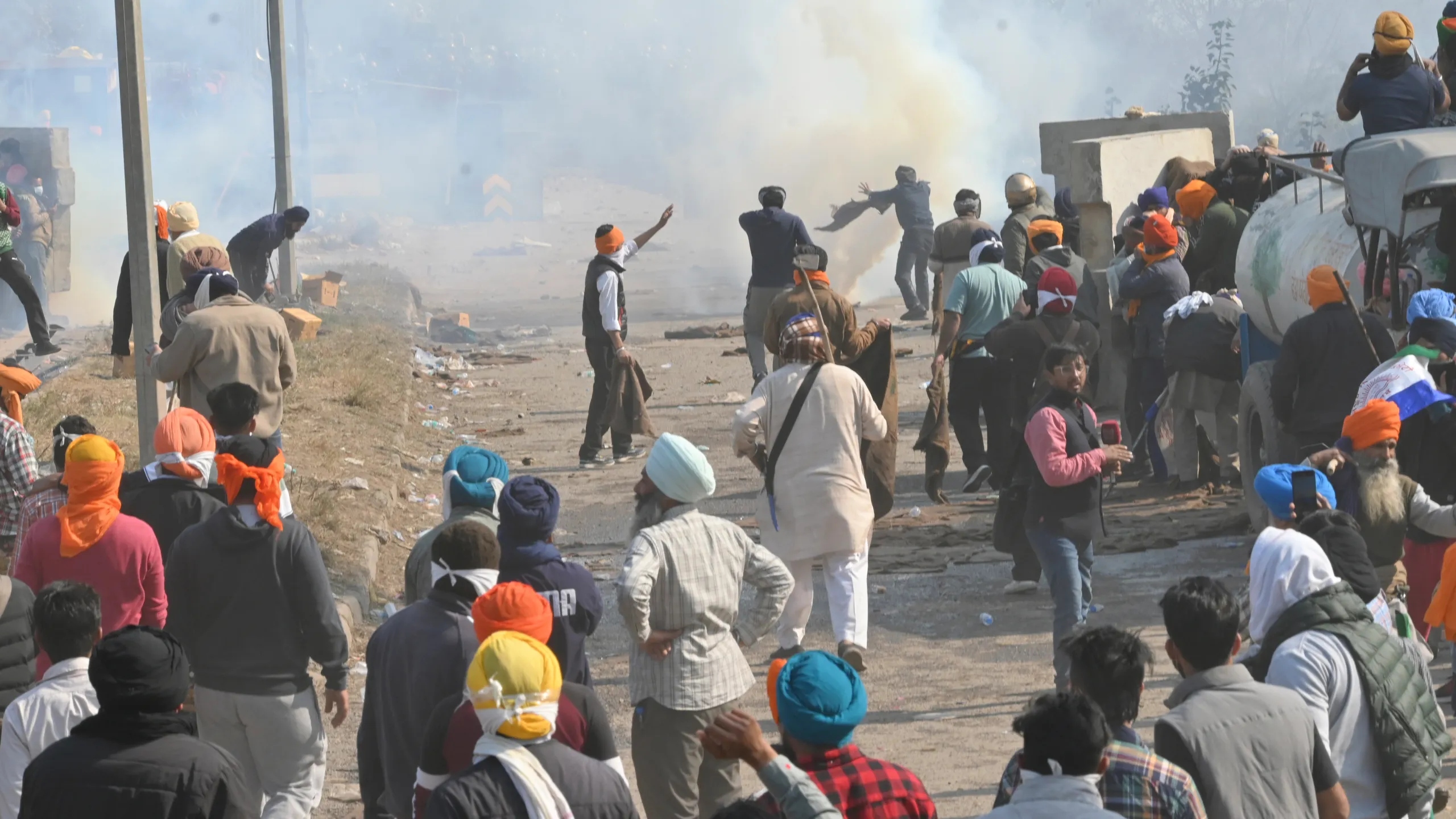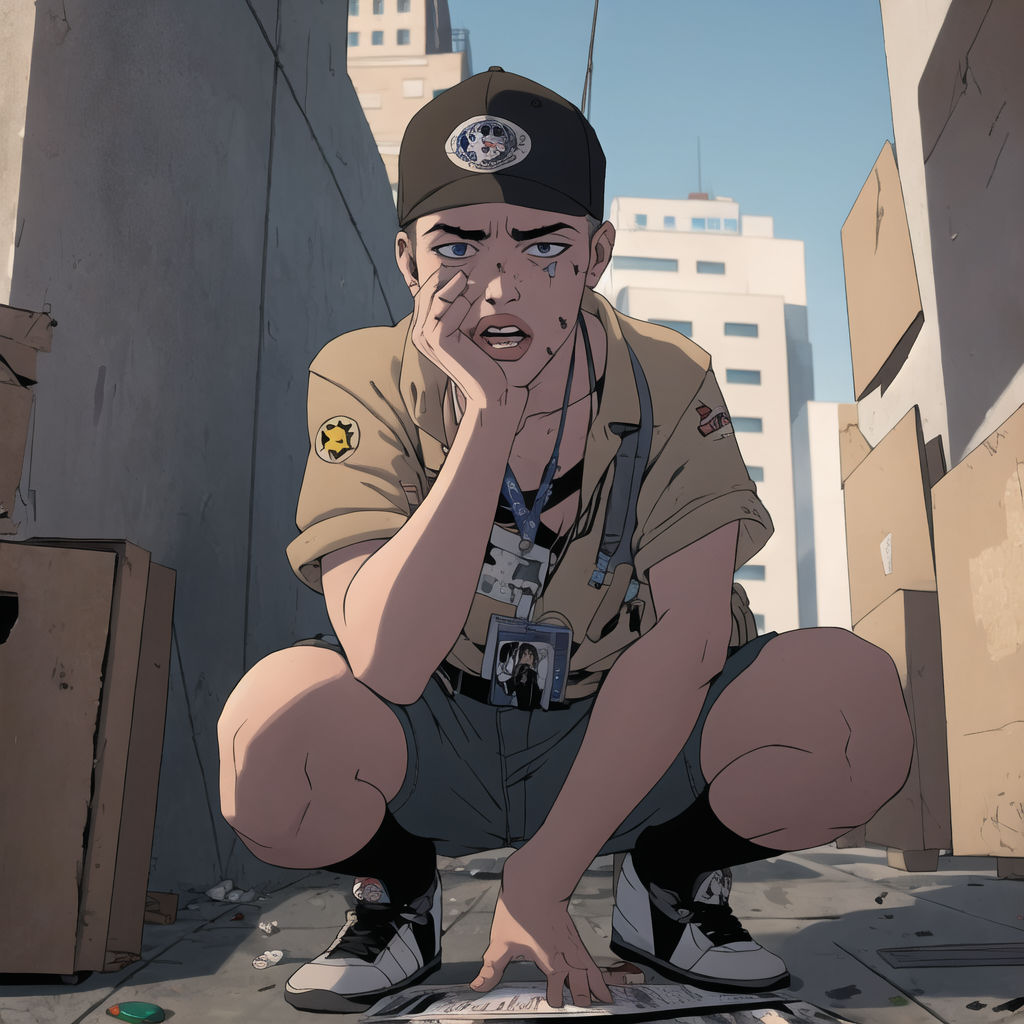Protests Escalate As Indian Farmers Clash With Police On Route To The Capital
The ongoing protests escalate as Indian farmers clash with police on route to the capital, amplifying tensions and drawing attention to the persistent grievances driving the demonstrations. The escalating standoff underscores the deep-seated discontent among farmers over agricultural reforms and highlights the challenges facing the Indian government in addressing their demands.
Author:Morgan MaverickReviewer:Raven NoirFeb 15, 202479 Shares5.6K Views

The ongoing protests escalate as Indian farmers clash with police on route to the capital, amplifying tensions and drawing attention to the persistent grievances drivingthe demonstrations. The escalating standoff underscores the deep-seated discontent among farmers over agricultural reforms and highlights the challenges facing the Indian government in addressing their demands.
Protests escalate as Indian farmers clash with police on route to the capital. The farmers' march toward the capitalsymbolizes their resolve to bring attention to their demands and hold the government accountable for its policies. The mobilization of farmers from across the country underscores the broad-based nature of the protests and the unity of purpose driving their collective action.
About 200 kilometers (125 miles) from New Delhi, close to the Shambhu border that separates the states of Haryana and northern Punjab, farmers were attacked by police using tear gas. Additionally, police were shown on television employing drones to dump tear gas canisters on the farmers as they attempted to breach barricades consisting of barbed wire and cement blocks.
Following the failure of talks between government ministers and farm leaders to reach an agreement on their main demand, legislation ensuring a minimum support price for their produce, tens of thousands of farmers started marching toward the capital on Tuesday. They were transporting their groceries and other supplies in trucks and wagons.
The government is being urged by protestors to keep its 2021 pledge to increase crop prices. Large gatherings are now prohibited in Delhi, and important routes from Punjab to the capital have been shut by police.
Farmers argue that these laws threaten their livelihoods by deregulating agricultural markets and exposing them to exploitation by large corporations, prompting widespread outrage and calls for their repeal.
On Friday, a number of labor unions and farmers organized a nationwide rural strike.
Farmer group leader Jagjit Singh Dallewal informed reporters:
“„We don’t want the government to say that farmers were being invited for talks but they are not coming. So we said that we are ready to have a discussion.- Jagjit Singh Dallewal
To stop the farmers from accessing the city, police in riot gear kept a close eye on several points of entry into New Delhi. They used obstacles composed of enormous metal containers, barbed wire, spikes, and cement blocks to block important highways. In order to stop the demonstrators from communicating with one another, mobile internet service was shut down in several parts of Haryana for a second day.
The march takes place a few months before the country's election, in which Modi is predicted by most to win a third term. Given that farmers make up a substantial portion of the electorate, the protests could provide a serious obstacle for him and the Bharatiya Janata Party, which he leads.
The escalating unrest among Indian farmers carries significant implications for the country's political landscape, economic stability, and social cohesion. The ongoing protests highlight the deepening divide between the government and its citizens and underscore the need for inclusive policymaking and dialogue to address the concerns of marginalized communities and ensure equitable development.
The protests escalate as Indian farmers clash with police on route to the capital. The clashes between protesting Indian farmers and police forces represent a critical juncture in the ongoing struggle for agricultural reform and social justice in India. As tensions continue to mount, there is an urgent need for concerted efforts to de-escalate the situation, facilitate dialogue between stakeholders, and address the legitimate grievances of farmers to pave the way for a more inclusive and sustainable future.

Morgan Maverick
Author
Morgan Maverick is an unorthodox news reporter driven by an insatiable hunger for the truth. Fearless and unconventional, he uncovers hidden narratives that lie beneath the surface, transforming each news piece into a masterpiece of gritty authenticity. With a dedication that goes beyond the boundaries of conventional journalism, Morgan fearlessly explores the fringes of society, giving voice to the marginalized and shedding light on the darkest corners.
His raw and unfiltered reporting style challenges established norms, capturing the essence of humanity in its rawest form. Morgan Maverick stands as a beacon of truth, fearlessly pushing boundaries and inspiring others to question, dig deeper, and recognize the transformative power of journalism.

Raven Noir
Reviewer
Raven Noir is a captivating and enigmatic news reporter who unravels mysteries with a relentless pursuit of truth. Possessing an insatiable curiosity and an astute mind, Raven delves into the depths of complex stories, unearthing secrets that lie beneath the surface. With a masterful grasp of deduction and observation, Raven stands as a beacon of fearless investigation.
In the realm of journalism, Raven is known for his enigmatic presence, drawing people in with an aura of intrigue. Driven by an unwavering passion for unveiling the truth, Raven Noir continues to shed light on the darkest corners of society. Through captivating storytelling and unwavering determination, he challenges conventions and uncovers enigmatic secrets that lie just beyond the surface.
Latest Articles
Popular Articles